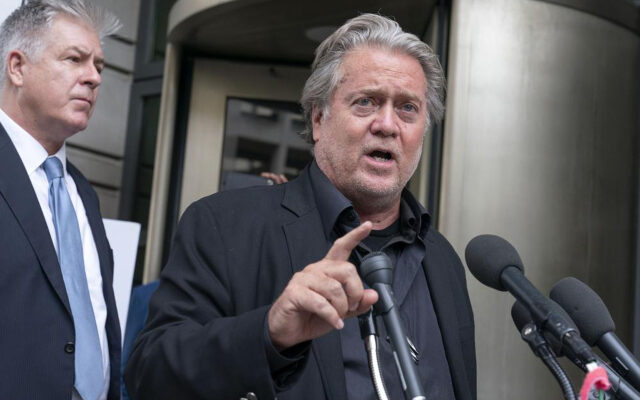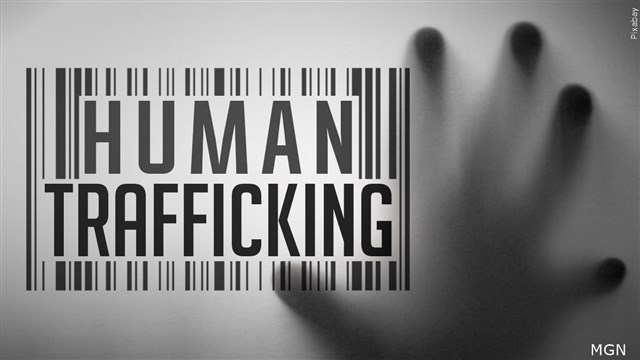Rethinking Putin’s Strategy in Ukraine

Moscow’s claiming to be scaling back its military operations around Kyiv today.
KXL’s Annette Newell recently spoke to Dr. Christopher McKnight Nichols, a history professor and author at Oregon State University, who says Vladimir Putin’s lack of a comprehensive strategy is showing up as Russia’s weakness. The following is a transcript from that discussion.
Newell: “You’ve written six books, right?”
Nichols: “Six books, authored or edited, yeah.”
Newell: “Great. But this one, ‘Rethinking American Grand Strategy,’ you call it a labor of love. So this one’s very special to you. Why?”
Nichols: “This book project was a labor of love in that I brought together a ton of my favorite historians, really amazing scholars to do a conference that was funded by some big grants here at Oregon State. We brought these folks together, commissioned these chapters, including from Pulitzer Prize winners, to think through what grand strategy might mean, and has meant in the historical record. And then to kind of recast it in some way.”
Newell: “Grand strategy started being used as a term in the 1860s. It used to be associated mostly with military power and negotiating to further a nation’s aims. But you’re saying that’s really too simplistic. It’s not inclusive enough as a definition, right?”
Nichols: “Yes. So the argument of the book and the reason that I’ve been so excited about putting it out in the world is that we need to expand what counts as grand strategy. If you look at the historical record, you can find hidden strategists and strategies. And that the evolution of ideas about grand strategy and actual policies and approaches is one that has taken into account a more diverse array of peoples and groups.”
Newell: “I see some shades of these arguments in what’s happening in Ukraine. Do you think that Putin’s approach to Ukraine, kind of reflects the old military might, grand strategy model, but he wasn’t expecting the newer, soft power elements of political resistance, Western nations, citizens fighting for their country?”
Nichols: “A grand strategy lens of analysis, illuminates a number of things about what’s going on in Ukraine. So one would be, it clearly shows that the means that Putin and Russia deployed to attempt to achieve their ends has been insufficient. So if you’re thinking in those military terms, it’s surprised a great many people, how inefficient and ineffective the Russian military has been and how inspiring and effective the Ukrainian defenses have been. But so too, if you think in the broader structures and here, your question is exactly right. The broader structures of Alliance systems, NATO and the European Union, the ways in which sanctions regimes now operate. I mean, I think again, you’re correct. Right? A grand strategy lens of analysis shows us that the international system has changed. It’s the most interconnected it’s ever been and Russia is not unconnected. In fact, it’s profoundly connected. Something like 36% of its trade is with the European Union. And as they attempt to push, not only to sanction, but also to begin to move away from direct trade, it looks like, you know, Russia is going to have all kinds of second and third level problems with their economy. For instance, they don’t have enough foreign parts to keep things running. It’s not just, businesses pulling out. If say they, they nationalize everything, all foreign owned assets, they simply don’t have the products, the parts, the capacity, the intellectual capital. These are the kinds of questions that if you’re doing grand strategy, if you look at the historical record, you need to ask and answer before you do an invasion. For instance, I mean, not that we want to advise Vladimir Putin, not in the least, but it’s clear that those questions weren’t asked and answered. So another thing it brings up is who’s doing the planning?”
Newell: “And so this brings to mind the impact of showing a single powerful image. There’s one of a woman, a teacher with a blood running down her face, that’s kind of circulated around the world. Is that a type of soft power that also is powerful, that can factor into a grand strategy?”
Nichols: “Absolutely it is, you know, and there are strategies for producing images and propaganda that we see in the historical record. You can think of other iconic images. There’s the famous green-eyed woman from Afghanistan, this image of, of a person who, a war, a conflict, a set of principles, fought to free and liberate and change people’s hearts and minds and their future aspirations all embodied in one image.”
Here is a link to the book, “Rethinking American Grand Strategy:”



